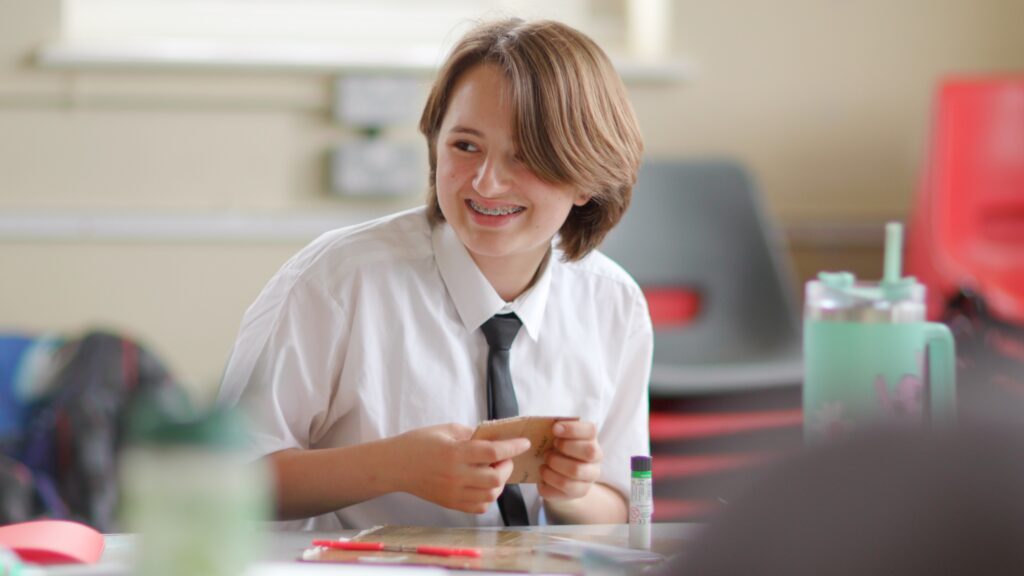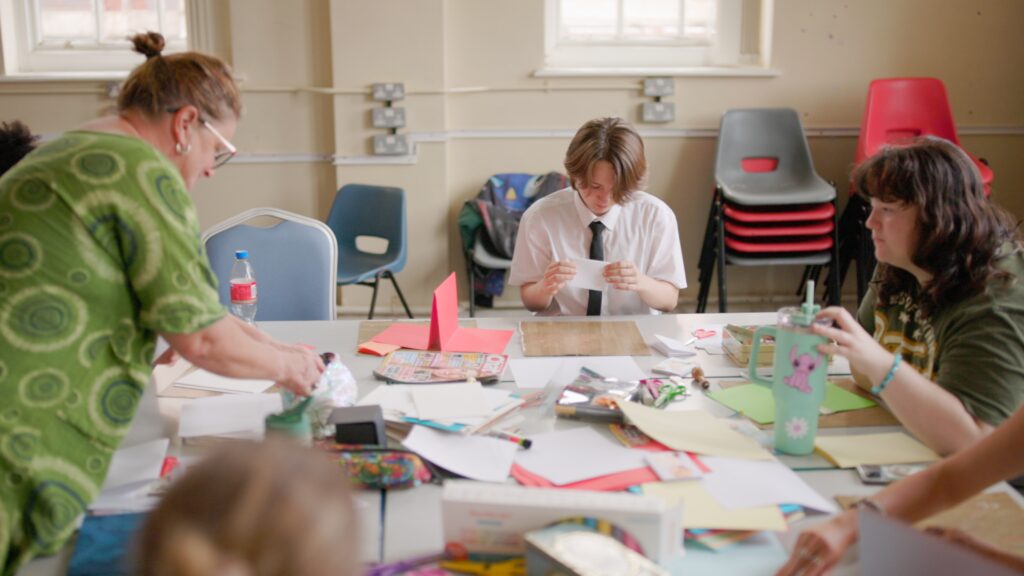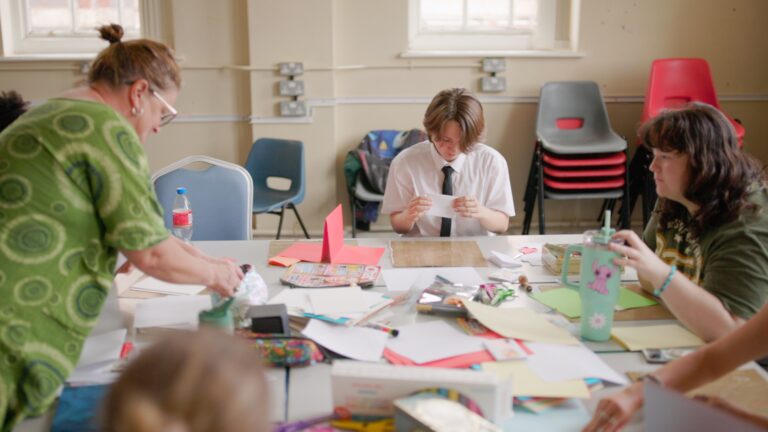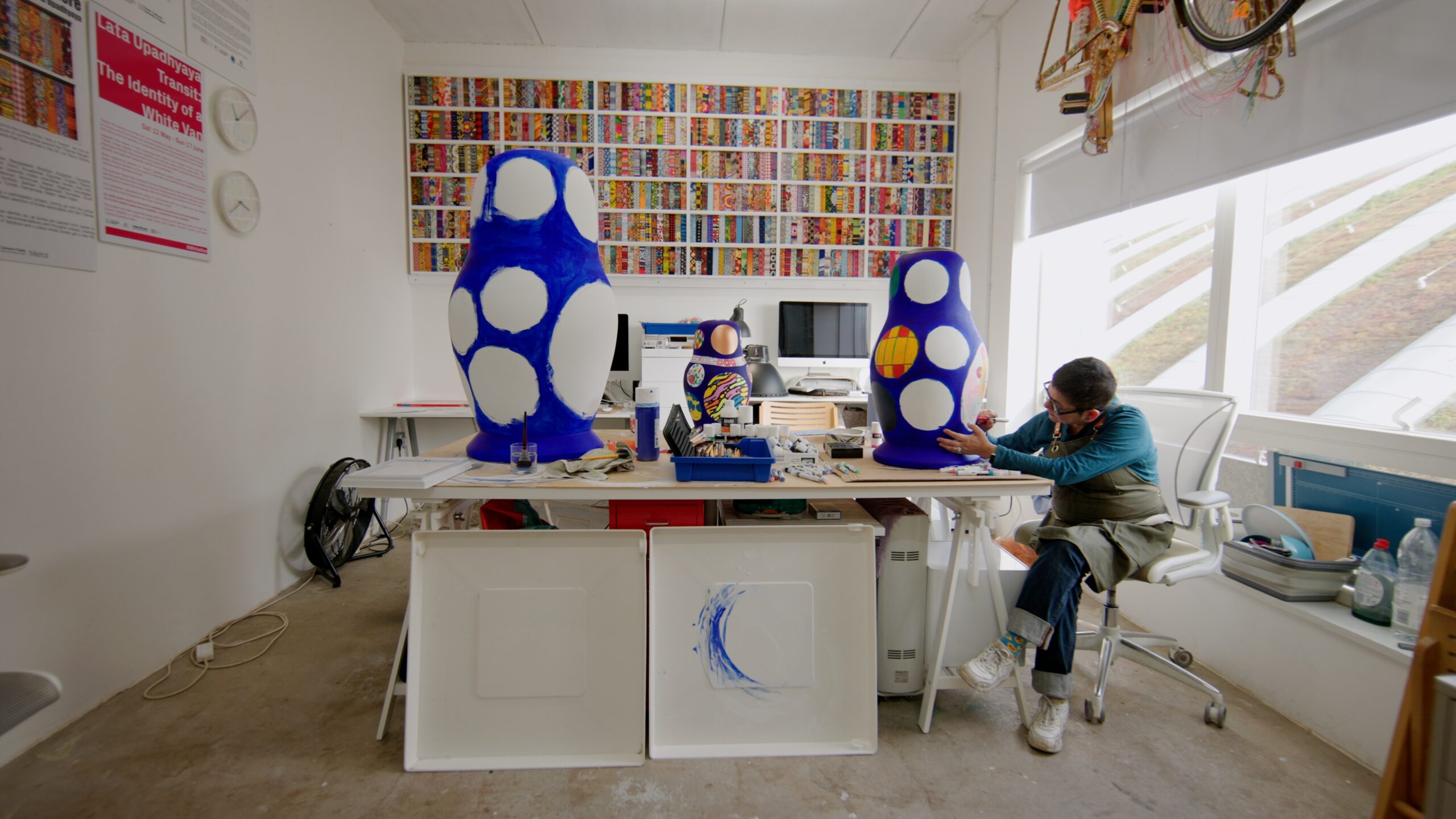Background
Jane Stewart is a visual and community artist based on the Essex coast. Her work examines our relationship to nature, particularly the coast, oceans bodies of water and our interactions to them as coastal communities. Stewart’s work has a strong thread of environmentalism and a passion for empowering diverse community groups across people in addiction recovery, SEND, asylum seekers and individuals in areas of financial deprivation such as Clacton, Jaywick and Walton-on-the Naze. Stewart’s work focuses on the intersection between art and science using this as a vehicle to make academic research available to all.
Historically, Jane Stewart delivered scuba diving and reef teaching programme for adults and then transitioned to organising beach cleaning activities for the past 30 years. and this informs her art practise as Stewart continues to focus on advocating for protecting natural environments and reducing waste, pollution and consumerist approaches.
The Story Behind The ‘Eco Youth Project’
‘Eco Youth Project’ engaged with young people, particularly those with special education needs and disabilities (SEND), or families from financially deprived coastal towns in Tendring. The visual art project explored local history and environmental issues such as climate change, coastal erosion and the impact this has on surrounding communities. The project focused on spotlighting young people’s needs and ideas and allowing them to come up with different ways to improve the environment that they live in to make their communities a better place to live.
The project spanned across a series of workshops that helped participants to explore ways to make active changes within their communities such as beach cleaning activities, street art, island building, and public workshops involving families focusing on their relationship with the sea. The project also included two train journeys with youth workers and carers from Harwich and Dovercourt to give them the opportunity to discover and explore a new place. The workshops concluded with young people collating and curating their own exhibition, which was then was documented in a zine to showcase the cumulative impact of what young people learnt throughout the series of workshops.
Local artists such as Nicolas Burrell, Vik Walsh and Angenita Teekens were featured, as well as organisations like the Harwich Seaside Explorers, Tendring Writers Group, Jaywick Martello Tower and The Nose. The purpose of the final workshops was rooted in equipping young people with a range of skills that can make them more employable within the arts, such as learning how to advertise an event, work within budgets and present and promote an exhibition that showcases their personal thoughts, ideas and lived experiences.
Legacy
The legacy of this project reached and positively impacted several participants and communities in the Tendring area. The initial workshops centred around themes such as exploring what climate change means to residents through the medium of collage making. This workshop was repeated at the end of the project to showcase the development of the participants skills and what they had learned throughout the workshops. The work also highlighted and raised issues around climate change through public exhibitions within art venues, as well as at train stations in Harwich and Dovercourt.
The participants that attended came from different youth groups, with several being neurodivergent. The evaluation process of each workshop highlighted that one common theme and challenge that the young people faced was climate anxiety. The misinformation that surrounded this issue was clearly displayed in the feedback sessions, which highlighted the importance of providing evidential, up-to-date information surrounding climate change through working with educators and the use of creative tools.
One of the most prominent outcomes from the project was the level of self-confidence developed within the young participants. One of the participants who was selectively non-verbal could confidently voice her thoughts and suggestions by the third workshop. Another has since applied to study Marine Biology following a conversation with Professor Leanne Hepburn from University of Essex. Another participant has also decided to look into fashion and textile design at university, with a focus on recycled fabrics. Another will also be starting a business degree with a view to starting an eco-business in the future.
By engaging young people in what ‘Climate Change’ means to them, both locally and globally, and encouraging creative expression and open conversations, the project showcased how participants can have a voice if they feel empowered and encouraged to achieve their ambitions. This was achieved by giving them ownership of the project and exposure to new environments and access to creative tools. By working with the University of Essex’s School of Life Sciences, this provided a source of inspiration for young people to learn about Eco Entrepreneurship, offering a different perspective of what their future might include.
Testimonials
‘It was truly wonderful to be a part of this project with you and the other artists, I feel I have learnt a lot and I’m happy I got to meet so many cool people through it. This has been a wonderful opportunity I won’t forget. Thank you, I hope we keep in touch’.
‘Thank you for allowing me to join this project, it has been a real source of inspiration and direction for me. I can’t thank you enough for the experiences and knowledge you have shared with me. Thank you for genuinely caring about us and your impact on us. I have learned so many new things and met so many interesting people because of this project, it’s been an unforgettable experience. It has really opened my eyes to a lot of issues I didn’t originally see and made me determined to be a part of stopping them.’
‘This project inspired me to apply to university to continue geography and to make me look into environmental careers, before this project, I had no idea what I wanted to do with my life. My aim is to get a degree and training that will allow me to go into humanitarian and environmental aid, so I can support and protect people and environments from issues they face. I hope when we speak again in the future, I’ll be able to tell you I am doing just that.’
‘This project has been a breath of fresh air in an otherwise very structured and monotonous life, you have made more of a difference than you know.’
‘I just wanted to big thank you for letting be a part of the eco project it has been a pleasure and wonderful experience that I’ll be able to take throughout life and hopefully get more people aware of how we are treating the planet. I couldn’t tell you how much fun it was being a part of the Eco Project and I hope that maybe I will be able to be a part of another project with you in the future. It was a pleasure meeting you and I just wanted to email you to let you know how grateful I am for the experience that you gave me.’






